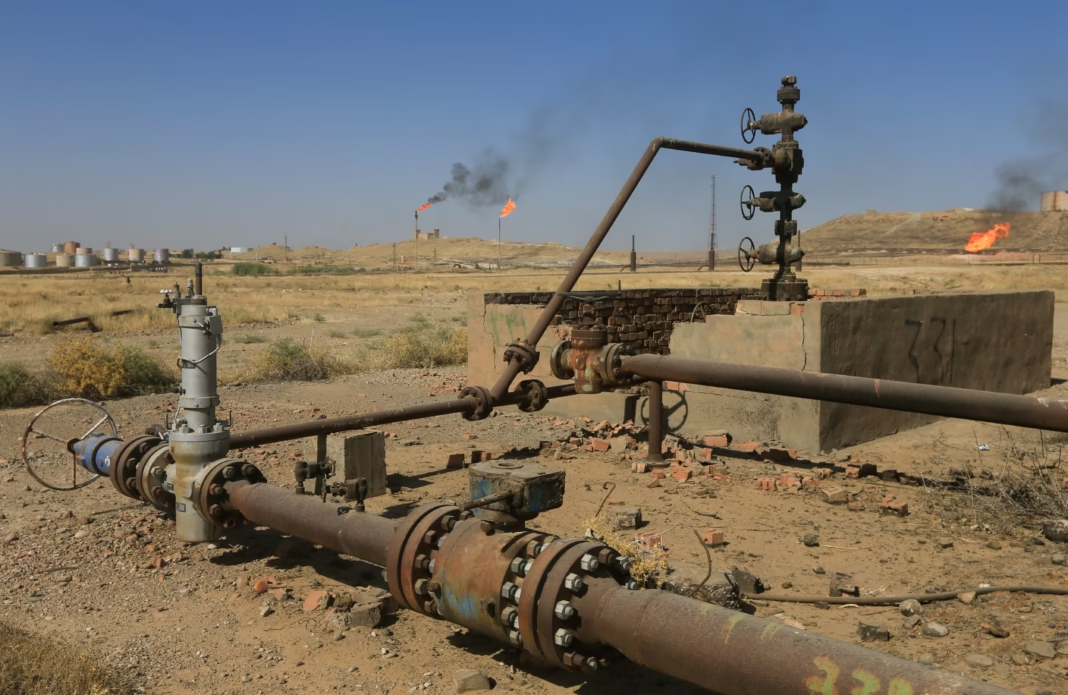Oil prices fell for a fifth straight session on Tuesday after Iraq and Kurdish authorities reached a preliminary deal to restart a major oil pipeline. This agreement adds to global oversupply concerns, as markets anticipate more crude entering international circulation. The news underlines the sensitivity of oil prices to geopolitical and production developments.
Brent crude futures dropped 42 cents, or 0.63%, to $66.15 per barrel by early Tuesday. US West Texas Intermediate crude fell 36 cents, or 0.58%, to $61.92 per barrel. Both benchmarks have declined roughly 4% over the past five sessions, showing consistent downward pressure from supply-related news. These price movements reflect investor concerns about market balance.
LSEG senior analyst Anh Pham explained that oversupply remains the main theme while demand forecasts remain uncertain. “The restart of the KRG pipeline is also putting additional pressure on prices,” Pham said. This emphasizes how regional production decisions directly affect global crude pricing.
The pipeline restart allows roughly 230,000 barrels per day of crude exports from Iraqi Kurdistan to resume via Turkey. These exports had been suspended since March 2023, limiting regional oil flows and affecting revenue streams for Kurdish producers. Resuming operations will stabilize local energy markets.
Oil companies and both the federal and Kurdish regional governments finalized the deal on Monday. Officials described the breakthrough as a sign of stronger coordination between Baghdad and Erbil on energy exports. The deal also signals a move toward more predictable oil supply from the region.
Global markets face additional pressure from growing electric vehicle adoption and economic slowdowns caused by trade tariffs. These trends reduce expected demand growth for oil, increasing the likelihood of prolonged oversupply in the coming months.
The International Energy Agency reported that world oil supply will rise faster this year, with potential surpluses expanding in 2026. Rising OPEC+ output and higher production from non-OPEC nations are key contributors. Analysts warn that this could keep global oil prices subdued.
Geopolitical risks remain significant, with traders closely monitoring potential EU sanctions on Russian oil and ongoing tensions in the Middle East. Any escalation could disrupt crude flows and influence prices. This demonstrates that markets remain highly sensitive to both policy and political events.
US crude stockpiles were expected to rise last week, while petrol and distillate inventories likely declined, according to a Reuters poll. These mixed signals illustrate the complex dynamics influencing short-term pricing in the US market.
Saudi Arabia’s crude exports in July fell to a four-month low, while Iraq has steadily increased production under OPEC+ agreements, according to state oil marketer Somo. This combination of higher production in Iraq and reduced Saudi exports adds nuance to regional supply analysis.
Analysts said the KRG pipeline restart and elevated production could keep oil prices under pressure, even as markets monitor global demand and geopolitical developments. Investors are likely to weigh both supply increases and potential disruptions in upcoming months to guide trading strategies.





